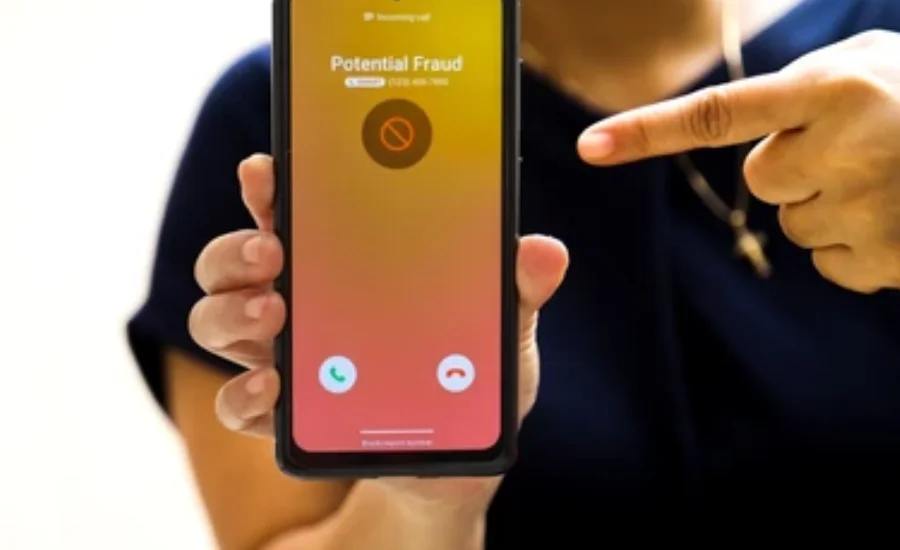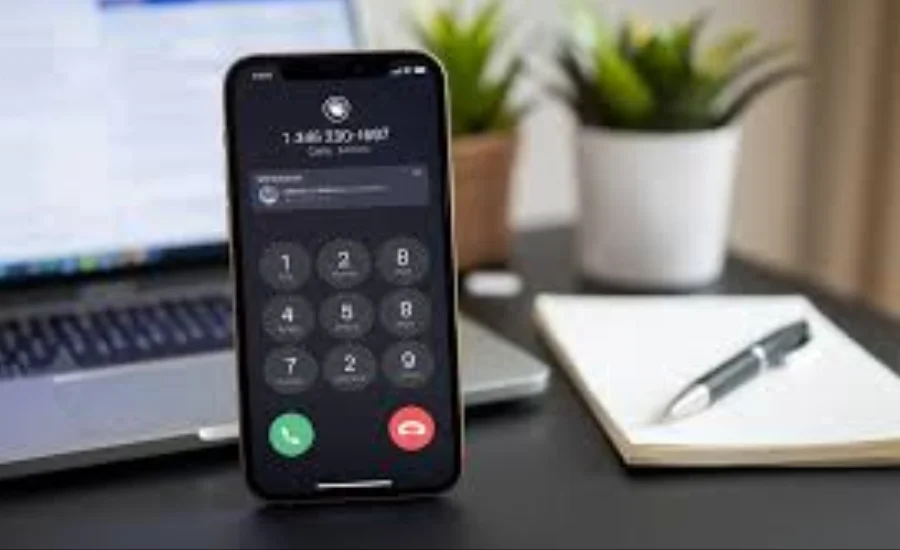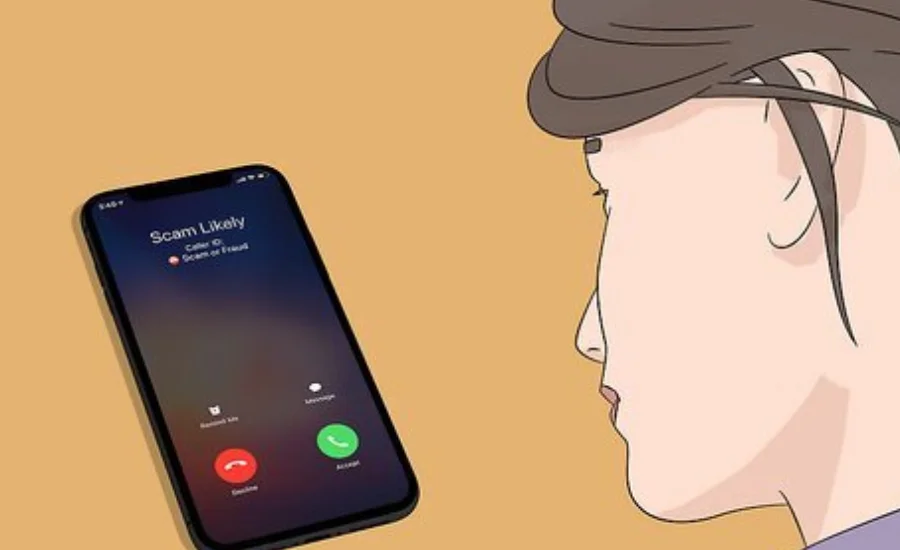Have you ever answered your phone, expecting a friendly voice, only to be met with a robotic message or an unfamiliar number? If this sounds familiar, you’re not alone. The increasing wave of robocalls and spam calls has become a frustrating part of modern communication.
One such number that might have caught your attention is 224-717-9517. Who could be behind it? Is it a benign call or something more concerning? In this article, we’ll investigate the rise of spam calls, explore the mystery of this specific number, and offer actionable advice to safeguard yourself from potential scams.
Possible Origins of 224-717-9517

Telemarketing Calls
One of the most common reasons for receiving a call from 224-717-9517 could be telemarketing. Companies use local area codes to make their calls appear legitimate and familiar to the recipient. If you’ve ever filled out a form, entered a contest, or signed up for an online service, it’s possible that your contact information was shared with marketers. Telemarketers may try to sell products or services, or they may call to survey your opinions on various subjects.
While not inherently malicious, telemarketing calls can be highly invasive and frequent, and they often provide little value to the recipient. If you’re receiving such calls from this number, it’s a sign that your information might have been sold or shared with marketing firms.
Scam Calls
Another, more concerning possibility, is that 224-717-9517 could be associated with scam calls. Scammers often use technology to spoof legitimate phone numbers, making it appear as though they are calling from a trusted local source. This tactic is known as “caller ID spoofing,” and it’s designed to trick you into answering the phone.
When dealing with scams, the intention behind the call is to deceive you into divulging sensitive information, such as your personal identification details, banking information, or credit card numbers. These types of calls are often accompanied by high-pressure tactics that encourage you to act immediately—whether it’s claiming that your bank account is in jeopardy or promising you an incredible prize you must claim now.
Scammers may also ask for payment through unconventional methods, such as gift cards or wire transfers, which are harder to trace and provide them with quick access to your funds. If you ever feel uncomfortable or threatened by the tone of a call, especially when there’s a request for personal or financial information, it’s best to hang up immediately.
Debt Collection
Another reason why you might be getting calls from 224-717-9517 is related to debt collection. Companies seeking to recover overdue payments may use this number to reach individuals with outstanding balances. If this is the case, it’s important to verify the legitimacy of the call. Debt collection calls should not be conducted in a threatening or high-pressure manner. They should also provide you with documentation if requested. If you suspect a call is related to a debt collector but are unsure, it’s crucial to request that they provide written confirmation of the debt.
Always take the time to independently contact any company claiming to be collecting a debt using their official contact details, and never provide personal financial information over the phone unless you’re certain of the caller’s identity.
Survey or Political Polling Calls
While less likely, 224-717-9517 could also be associated with legitimate survey companies or political polling organizations. These types of organizations reach out to individuals to gather feedback on consumer behavior, political opinions, or market trends.
Survey calls are generally harmless and are usually not intended to trick you into giving out sensitive information. However, they can be annoying, especially if you are contacted repeatedly. If you receive a call from this number and the caller seems to be asking for your opinions on various topics, it’s more likely to be a legitimate survey. However, if the caller starts asking for personal identifying information, you should end the call immediately.
The Growing Threat of Robocalls and Spam
In recent years, robocalls and spam calls have become a major disruption in daily life. These calls, often made by automated systems or scammers, are designed to send pre-recorded messages or request personal information, frequently leaving recipients frustrated and alarmed. With the sophistication of the technology behind these calls, it’s no surprise that the problem continues to escalate.
One of the most troubling aspects of robocalls is their ability to mimic legitimate numbers. Scammers use a technique called “spoofing,” where they manipulate the caller ID to show a familiar local number, making it more likely that the recipient will answer. This tactic is just one of many strategies they use to prey on unsuspecting individuals.
The sheer volume of unsolicited calls, often ranging from telemarketing pitches to fraudulent schemes, can make it feel overwhelming. These calls often target vulnerable individuals, playing on their emotions and trust to elicit sensitive personal data or money. Despite efforts to regulate and curb these practices, the evolving nature of scams continues to challenge authorities, leaving many people feeling powerless against these intrusive phone calls.
The Mystery Behind 224-717-9517
Have you ever received a call from an unfamiliar number like 224-717-9517? It’s natural to wonder who is calling, especially when the number doesn’t seem to belong to someone you know. Many individuals have expressed concerns about this particular number, reporting it as suspicious and often associated with robocalls or telemarketing.
When a call like this comes through, it’s important to remain cautious. While some callers might be legitimate businesses or services, others could be trying to manipulate you into sharing personal information or making hasty decisions. Often, these calls are automated, using recorded messages to sell products or solicit personal details.
If you receive a call from 224-717-9517, or any unknown number, it’s wise to proceed with caution. Let the call go to voicemail. Most legitimate organizations will leave a message with relevant information, while fraudulent callers typically hang up if no one answers. By screening calls and avoiding immediate engagement, you can protect your privacy and personal security.
How to Verify the Legitimacy of a Call
Receiving calls from numbers like 224-717-9517 often leads people to question whether they’re dealing with a legitimate phone call. Many times, these numbers appear to be from local or familiar area codes, which can make them seem more trustworthy. However, scammers frequently spoof numbers to increase the likelihood that someone will pick up the phone.
If you’re unsure whether a call is legitimate, there are steps you can take to verify the caller’s identity. Begin by conducting a quick online search of the phone number. Various websites allow users to report spam and scam calls, and you might find reviews or alerts about this number. People who have had similar experiences often share warnings, which can help you assess whether the call is a threat.
Additionally, if the call is important, a legitimate business or organization will usually provide alternative ways to get in touch, such as a customer service number on their website. Avoid giving out personal information over the phone to unverified numbers, especially when dealing with unsolicited calls.
Protecting Yourself from Scam Calls

As robocalls and scams continue to rise, taking steps to protect yourself is crucial. There are several measures you can adopt to limit the number of unwanted calls you receive and to safeguard your personal information.
One of the first steps is to screen calls from unknown numbers. Many smartphones have built-in features or third-party apps that can help identify spam calls or block them altogether. These tools can be incredibly helpful in reducing the volume of intrusive calls you receive.
Furthermore, it’s essential to never share sensitive information over the phone unless you are certain of the caller’s identity. Scammers often attempt to collect personal data such as your social security number, credit card details, or bank account information. Be suspicious of any unsolicited request for this kind of information, especially if the caller pressures you to act quickly or threatens negative consequences.
Another effective way to protect yourself is to block specific numbers that repeatedly harass you. By doing this, you can prevent future interruptions from the same sources.
Managing Unwanted Calls
It’s impossible to avoid robocalls and spam entirely, but there are several strategies you can employ to reduce their frequency and limit their impact. One of the most effective methods is using call-blocking apps. Many smartphone manufacturers also offer built-in spam protection features, which can help identify potential scam calls.
Another way to manage unwanted calls is by signing up for the National Do Not Call Registry. While this won’t eliminate every robocall, it can significantly reduce the number of legitimate telemarketing calls you receive. It’s a simple, free service provided by the government that can help cut down on the frequency of these interruptions.
If you happen to answer a suspicious call, do not engage with the caller. Hang up immediately. Scammers often use pressure tactics to make you act impulsively, and the longer you stay on the line, the greater the risk of falling victim to their schemes.
Reporting Suspicious Numbers
If you encounter a suspicious number like 224-717-9517, it’s essential to report it to help protect others from falling victim to similar scams. Reporting these calls can aid in tracking down fraudsters and contribute to efforts to stop their activities.
The first step in reporting a suspicious number is to document the details. Take note of the date, time, and any messages or claims made by the caller. This information can be valuable for authorities when investigating the source of these calls.
You can report scam calls to your phone carrier, many of which have dedicated channels for addressing spam calls. In addition, organizations such as the Federal Trade Commission (FTC) and the Federal Communications Commission (FCC) accept complaints about robocalls and other types of fraud. These agencies use the data provided to monitor and act against scam operations.
Social media platforms and online forums also offer a space for individuals to share their experiences. By doing so, you can help others identify and avoid potential scams, contributing to a more informed public.
Understanding the 224-717-9517 Area Code
The phone number 224-717-9517 is part of the 224 area code, which serves parts of northeastern Illinois, including areas around Chicago. While the area code itself provides some context about the number’s origin, it doesn’t necessarily offer insight into the caller’s intentions. Scammers can easily spoof numbers to make it appear as though they are calling from a local area code, making it harder for recipients to recognize fraudulent calls.
Receiving calls from numbers like 224-717-9517 can be concerning, especially if they come at odd hours or repeatedly. If you’re unsure about the purpose of the call, it’s best to exercise caution and verify the source before engaging.
Common Reasons for Receiving Calls from 224-717-9517
There are several reasons why you might receive calls from numbers like 224-717-9517, and understanding these can help you determine how to respond.
- Telemarketing: One common reason for receiving calls from this number is telemarketing. Companies often use local numbers to make their sales pitches seem more familiar and trustworthy. If you’ve recently signed up for a service or entered a contest, your contact information might have been shared with telemarketers.
- Scams: Unfortunately, scam calls are a prevalent reason for receiving unsolicited calls from numbers like 224-717-9517. Scammers use number spoofing techniques to make their calls look legitimate, often attempting to steal personal information or trick you into paying for non-existent services.
- Surveys: Some legitimate organizations, such as those conducting market research or political polling, may use numbers like 224-717-9517 to contact random individuals for surveys. These calls are generally harmless but can still be intrusive.
- Debt Collection: If you have any outstanding debts, companies may use numbers like this to contact you regarding overdue payments. However, always verify the legitimacy of any such call before providing any personal information.
How to Respond to Calls from 224-717-9517
If you receive a call from 224-717-9517 or any unfamiliar number, there are several steps you can take to safely handle the situation.
- Let the Call Go to Voicemail: If you aren’t expecting a call and the number seems unfamiliar, let it go to voicemail. Legitimate callers will typically leave a message if the call is important. Fraudsters, on the other hand, are less likely to leave a voicemail. If no message is left, this is a strong indication that the call is either from a marketer or potentially a scam.
- Search for the Number Online: Performing a quick Google search of 224-717-9517 can help you quickly identify whether others have flagged the number as suspicious. There are many online databases and user-submitted reports that can help you identify whether this number is associated with scams, telemarketing, or legitimate business activity.
- Block the Number: If the number keeps calling or you feel that it is intrusive, you can block it directly from your smartphone. Both iPhones and Android devices have built-in features to block unwanted numbers. Blocking numbers prevents them from contacting you in the future.
- For iPhone Users: Go to the recent calls list, tap the “i” next to the number, and select “Block this Caller.”
- For Android Users: Open your call log, find the number, tap the three-dot menu, and select “Block number.”
- Consider Registering with the National Do Not Call Registry: While this won’t eliminate every robocall, registering your phone number with the National Do Not Call Registry can significantly reduce the number of unsolicited calls from legitimate telemarketers.
- Trust Your Instincts: If the caller becomes aggressive, demands money, or asks for sensitive information, hang up immediately. Don’t engage with the caller, as doing so could make you a target for future scams. Scammers often try to trick you into giving them personal information by pretending to be a legitimate company or government agency.
- Report Suspicious Calls: If you believe the call was a scam, report it to the Federal Trade Commission (FTC) and the Federal Communications Commission (FCC). Both organizations track fraudulent calls and work to protect consumers from such threats. Reporting the number helps build a broader database that can be used to identify patterns and track down scammers.
Identifying a Scam
There are several signs that a call from 224-717-9517, or any other unknown number, could be a scam. Look out for the following warning signs:
- Request for Personal Information: If the caller asks for sensitive information like your social security number, bank account details, or credit card number, it’s a red flag.
- Urgency: Scammers often create a false sense of urgency, pressuring you to act quickly. If you feel rushed or threatened, hang up immediately.
- Unconventional Payment Methods: If the caller insists you make a payment via gift cards, wire transfer, or other unusual methods, it’s likely a scam.
- Aggressive Behavior: If the caller becomes hostile when you ask questions or refuse to comply, it’s a sign that the call is a scam.
What to Watch Out For with 224-717-9517
When receiving calls from numbers like 224-717-9517, it’s essential to be aware of common signs that a call could be fraudulent:
- Pressure to Act Quickly: Scammers often create a sense of urgency to encourage you to act before you have time to think it through. Whether they claim that your bank account is at risk or that you’ve won a prize, any caller who pushes you to make immediate decisions should be approached with caution.
- Unusual Payment Requests: Legitimate organizations typically don’t ask for payment through gift cards, wire transfers, or other hard-to-trace methods. If you are asked to make a payment in this way, it’s almost certainly a scam.
- Requests for Sensitive Information: No legitimate company will ask you for sensitive personal details, such as your social security number, bank account number, or passwords, in an unsolicited call. If the caller does, it’s likely they are attempting to steal your identity or money.
- Threatening Language: If the caller uses hostile or threatening language, especially when you ask questions or refuse to comply with their demands, you should hang up immediately. Scammers often use intimidation to try to force victims into compliance.
Reporting Suspicious Calls

If you believe a call from 224-717-9517 is a scam, you should report it to the appropriate authorities. The FTC and FCC accept complaints about fraudulent calls, which help them investigate and take action. Local law enforcement can also be contacted if the call involved threats or other illegal behavior. By reporting these calls, you contribute to efforts to stop scammers and protect others in your community.
Also Read: 602-671-3998
Final Words
Receiving a call from 224-717-9517 can leave you questioning its purpose. This number might be linked to telemarketers, debt collection, or even scams. Scammers often use “caller ID spoofing” to make their calls appear local, aiming to gain trust. Signs of scams include urgent demands, requests for sensitive information, or unconventional payment methods like gift cards.
To protect yourself, avoid answering unknown numbers; let calls go to voicemail. Use online tools to identify suspicious numbers and block persistent callers. Registering with the National Do Not Call Registry can reduce legitimate telemarketing calls. Always trust your instincts—if something feels off, hang up immediately.
If you suspect a scam, report it to the FTC or FCC to aid in combating fraudulent activity. Awareness and caution are your best defenses against unwanted calls, ensuring your personal information stays secure. Stay vigilant and safeguard yourself from potential risks linked to 224-717-9517.
For the latest updates and tips on protecting yourself from unwanted calls, visit DiscoverOutlooks and stay informed!
